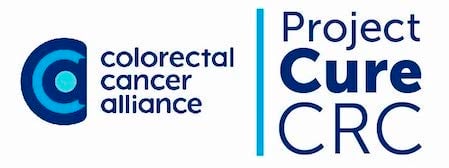On a mission to put an end to colorectal cancer, the Colorectal Cancer Alliance (CCA) recently launched Project Cure CRC, an initiative aimed at funding tens of millions of dollars in expedited, novel colorectal cancer research over the next two years.
“With this bold and urgent undertaking, the alliance seeks to create major breakthroughs in colorectal cancer diagnosis, treatment, metastasis, and survivorship,” CCA says on the webpage for the initiative. “Project Cure CRC resources will support investigators dedicated to colorectal cancer research and will help fuel leading-edge studies, clinical trials, and collaborations to drive progress toward more effective and personalized treatments for colorectal cancer patients.”

As part of the leadership team for Project Cure CRC, the alliance has enlisted Christopher Lieu, MD, associate director of clinical research at the University of Colorado Cancer Center, as scientific co-chair, along with researchers from Georgetown University and MD Anderson Cancer Center. Lieu was a featured speaker at the organization’s first Cure CRC Summit in Miami in December.
“It's part of a big investment in advancing colorectal cancer research in a very meaningful way,” Lieu says of the initiative. “The summit brought together a collection of academic physicians, patients and patient advocates, and industry sponsors to look at the field of research for colorectal cancer and review what's worked and what hasn’t worked. We are looking for the areas that will have the biggest impact.”
Studying the disease’s changing demographics
While prevention and detection are part of the conversation, Lieu says, Project CRC is primarily aimed at treatment for colorectal cancer, which, according to the American Cancer Society (ACS), is the third leading cause of cancer-related deaths in both men and women and the second most common cause of cancer deaths when numbers for men and women are combined. The ACS expects around 152,000 new cases of colorectal cancer and 52,550 deaths from the disease in 2024 — numbers that represent a demographic change from where the disease was 20 years ago.
“In our oldest adults, the rates of and mortality from colorectal cancer have dropped significantly over the past couple of decades,” says Lieu, associate professor of medical oncology at the CU School of Medicine.. “Simultaneously, the number of young patients — people 50 and younger — developing colorectal cancer has been increasing for two decades. It also seems that our middle-aged population is carrying a higher risk of developing colorectal cancer as well.”
Part of the Project CRC mission is to understand that shift and address it with high-risk, high-reward research projects that are designed to foster collaborations among institutions and industry.
“To further research, we need bigger databases and collaboration where we compile data together — not only universities, but industry sponsors as well,” Lieu says. “We are trying to break down some of the silos and barriers that exist in research. People want to work together, put their egos aside, and really make a difference. It’s really inspiring.”
Patient perspective
For Lieu, one of the most inspiring parts of Project Cure CRC is that it is sponsored by the CCA, an advocacy organization for people with colorectal cancer and their families. The patient connection is an important one, he says.
“The patient voice is going to help us determine what’s important to patients, not just what’s important to scientists,” he says. “They were part of the summit, and they will continue to be a tremendously big voice in the work that we do. Researchers often think about things in terms of year one, year two, year five, but our patients don’t always have five years. There is an urgency to this that they really stressed. It makes it personal, and that’s good. Patients can’t wait two decades for a major breakthrough."
Featured image, from left, Christopher Lieu, MD; Scott Kopetz, MD Anderson Cancer Center; Katie Chudnovsky, Board Member, Colorectal Cancer Alliance; Michael Sapienza, CEO, Colorectal Cancer Alliance; John Marshall, Georgetown University. Photo courtesy of Christopher Lieu




